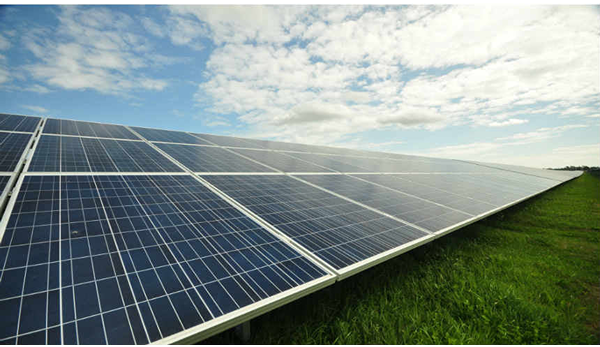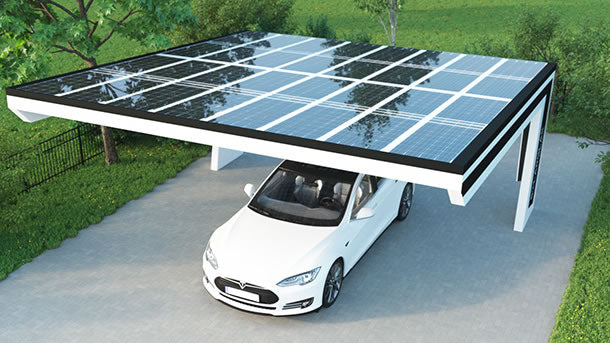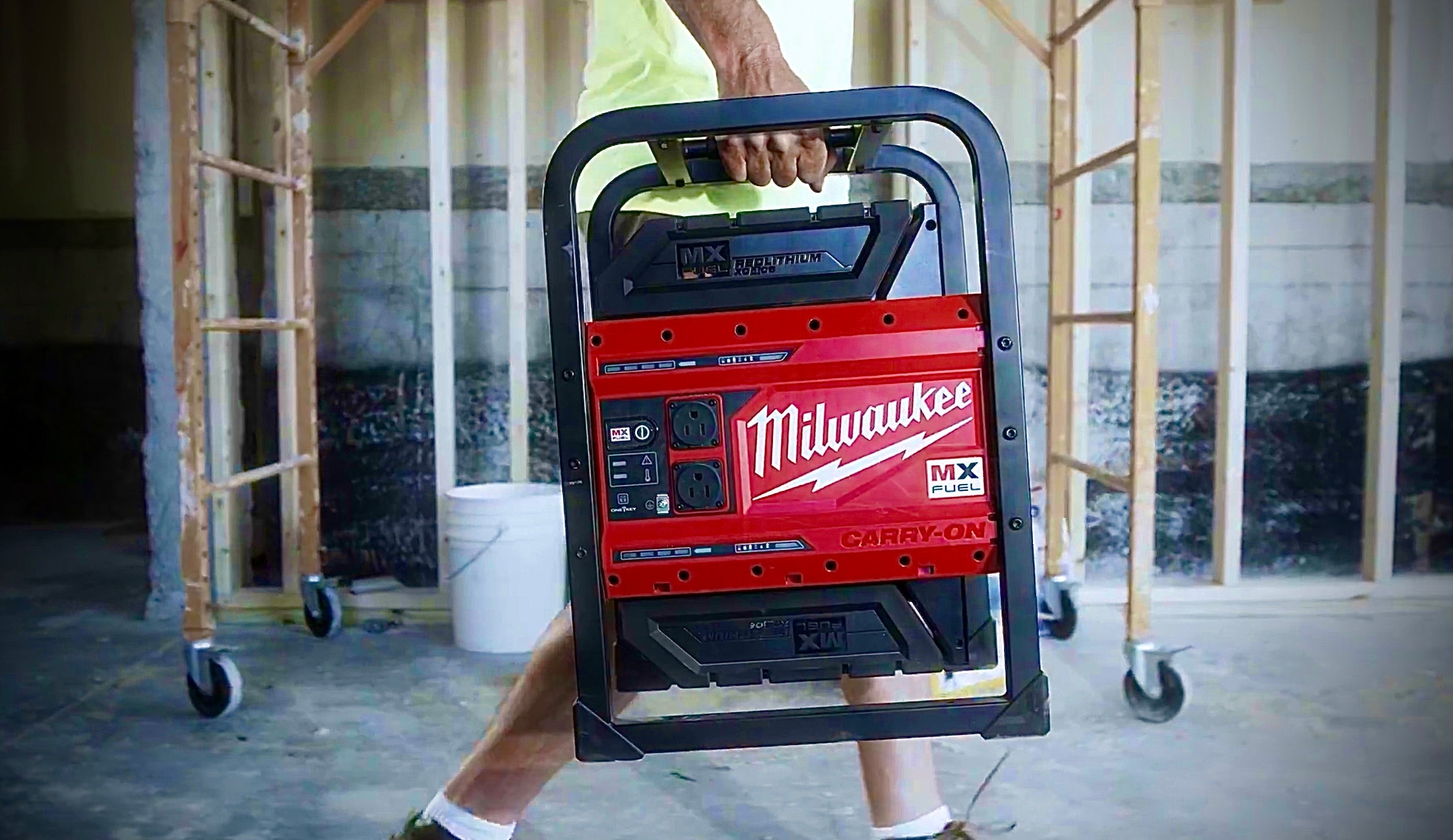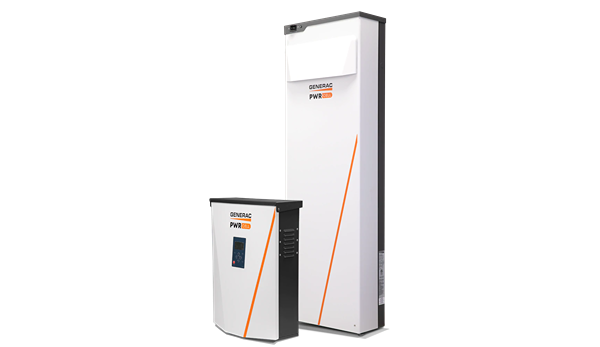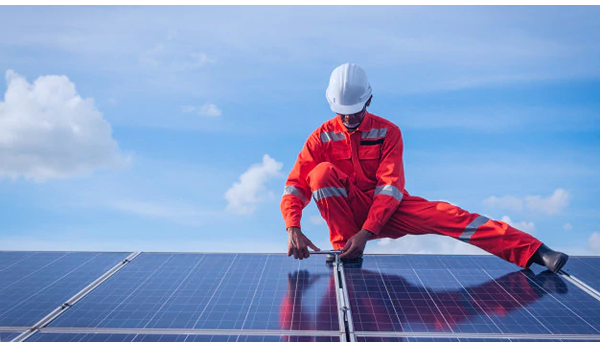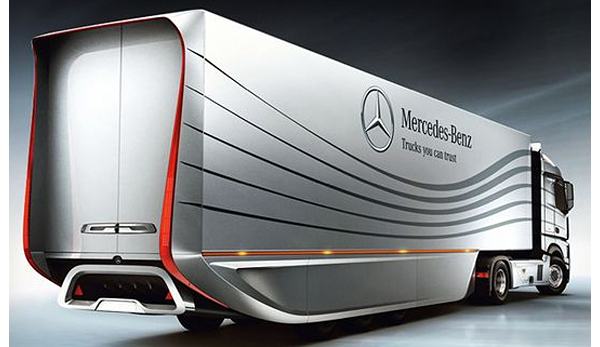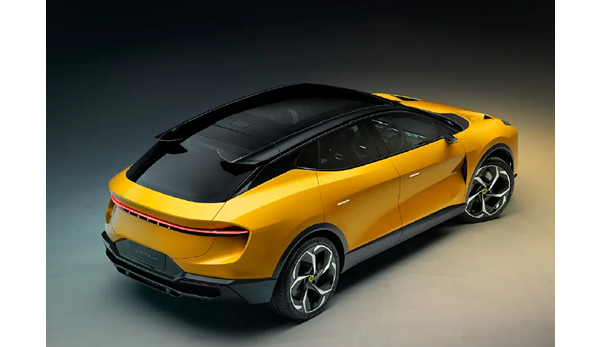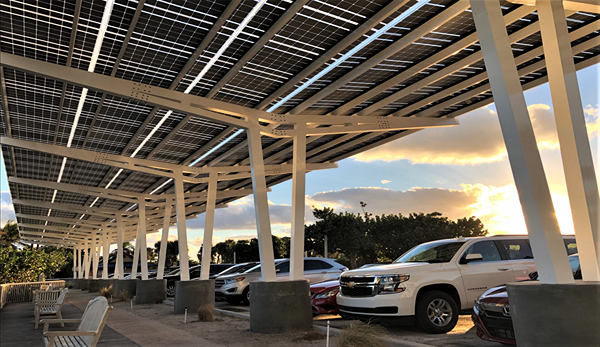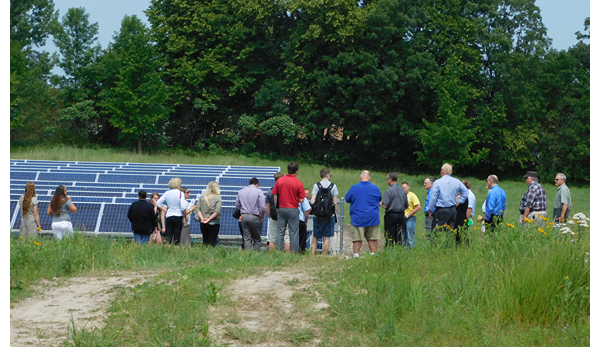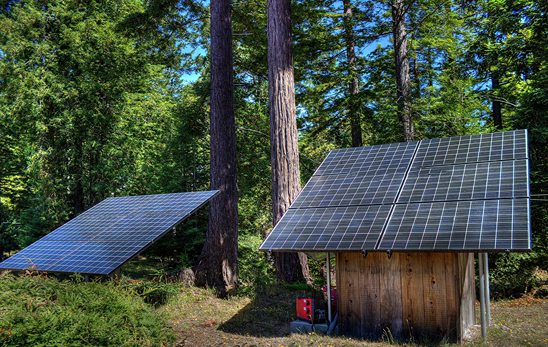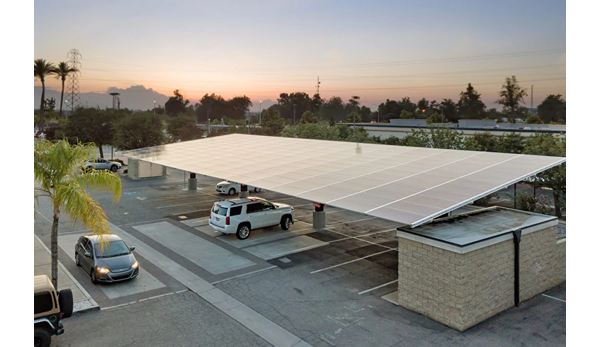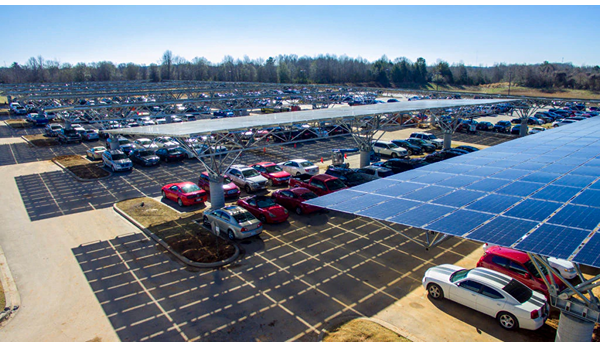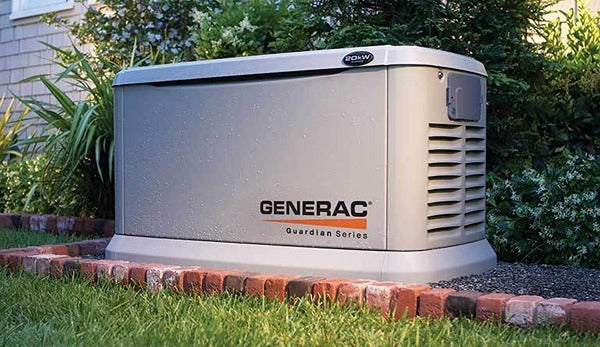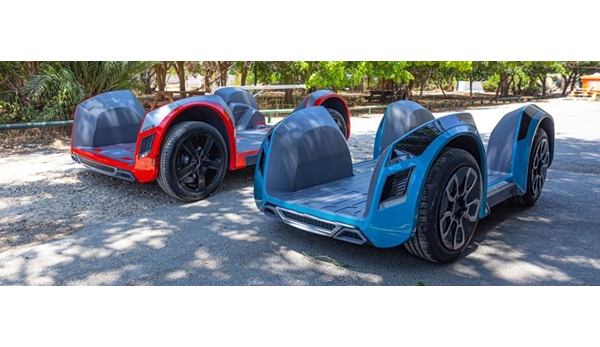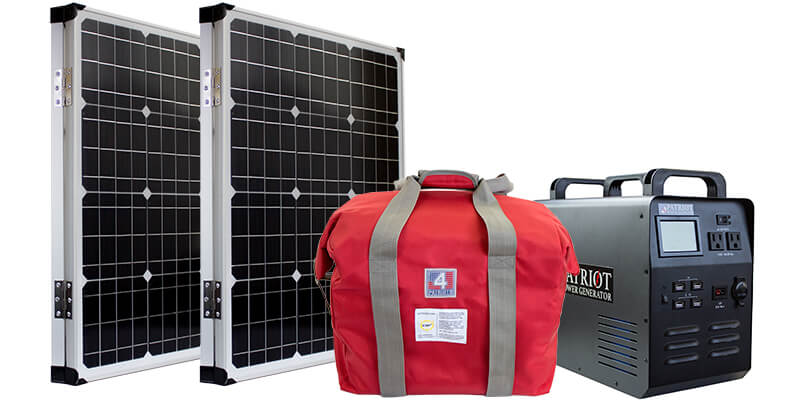
Power Everywhere, Anytime: Harnessing Renewable Energy with Portable Solar Generators
Power Everywhere, Anytime: Harnessing Renewable Energy with Portable Solar Generators
What is a solar generator?
A solar generator, also known as a portable power station, is a device that harnesses the energy of the sun and converts it into usable electricity. Unlike traditional generators that rely on fossil fuels or batteries, solar generators utilize photovoltaic panels to capture sunlight and store it in built-in batteries for later use. This means that they offer a clean and renewable source of power without harmful emissions or the need to continuously refuel. What sets solar generators apart is their portability. These compact devices come with handles and wheels, allowing users to easily transport them wherever needed. Whether you're going camping in the wilderness, embarking on a road trip, or experiencing a power outage at home, a solar generator can provide you with electricity to charge your phones, run small appliances like laptops or fans, and even power some essential medical equipment if necessary.
With advancements in technology and increased efficiency of solar panels and batteries, these generators have become more affordable and reliable than ever before. It's worth noting that while solar generators are not as powerful as conventional diesel or gas-powered alternatives when it comes to running heavy-duty machinery or large appliances continuously for an extended period; they excel at providing sustainable energy solutions for everyday tasks or emergency situations. Moreover, by investing in a solar generator, individuals contribute to reducing their carbon footprint by embracing renewable energy sources – an important step towards combatting climate change while enjoying the convenience of having electricity on-the-go.
How do portable solar generators work?
Benefits of using portable solar generators
Applications of portable solar generators
Choosing the right portable solar generator
Conclusion: Embracing renewable energy on the go
How do solar power generators work?
Solar power generators, also known as portable power stations, harness the energy from sunlight to generate electricity. The process begins with solar panels that capture photons from the sun's rays and convert them into direct current (DC) electricity. These solar panels are made up of silicon cells that use a phenomenon called the photovoltaic effect to create an electric current when exposed to light. The generated DC electricity is then passed through an inverter, which converts it into alternating current (AC) electricity suitable for powering electronic devices and appliances. This AC electricity can be used immediately or stored in a battery for later use. The battery is a crucial component of a solar power generator as it allows for energy storage during daylight hours and provides power at night or on cloudy days. This makes portable power stations highly convenient and reliable sources of energy in remote locations and during emergencies. One interesting aspect of solar generators is their ability to operate silently without any emissions or pollutant byproducts, making them environmentally friendly alternatives to traditional fuel-powered generators. Moreover, advancements in technology have led to the development of lightweight and compact designs that make these generators highly portable and easy to transport. Additionally, many models feature multiple output options such as USB ports, AC outlets, and even carport sockets, making them versatile solutions for charging various devices simultaneously. Solar power generators work by converting sunlight into usable electrical energy through the combined efforts of solar panels, inverters, and batteries.
Who benefits from using solar generators?
Solar generators are not just for those living off the grid or in remote areas with limited access to electricity. In fact, there are a wide range of individuals and organizations who can benefit from using solar generators. For outdoor enthusiasts and adventurers, portable power stations offer a reliable and convenient source of energy to keep their devices charged while exploring off-the-grid locations. From camping trips to long hikes, these portable power stations provide peace of mind and ensure that you never run out of power when you need it most. Beyond recreational use, solar generators also have practical applications for emergency preparedness. During natural disasters or power outages, having a backup power source can be a game changer. Whether it's keeping essential medical equipment running or powering up communication devices to stay connected with loved ones, solar generators provide a reliable source of electricity when traditional methods fail. Additionally, businesses looking to reduce their carbon footprint and save on energy costs can benefit from installing solar generator systems. Not only do they provide clean and sustainable energy, but they also offer potential tax incentives and long-term savings on utility bills.
The potential beneficiaries of solar generators extend far beyond just those in remote areas without access to traditional electrical sources. Outdoor enthusiasts seeking adventure can rely on portable power stations for all their charging needs while emergency preparedness becomes much easier with this reliable backup option. Moreover, businesses embracing sustainability practices will find that adopting solar generator systems offers both environmental benefits as well as financial advantages in the long run.
Make more eco-friendly choices
One of the recent trends in eco-friendly choices is the use of solar generator portable power stations. As we become more conscious about reducing our carbon footprint, this innovative technology allows us to harness the power of the sun and generate clean energy on-the-go. These portable power stations are not only convenient for outdoor activities like camping or hiking, but they also serve as a reliable backup source of electricity during emergencies. By opting for this sustainable alternative over traditional fuel-powered generators, we can significantly reduce air and noise pollution while taking one step closer towards a greener future. Another way to make more eco-friendly choices is by shifting towards renewable energy sources at home. Installing solar panels on your rooftop not only provides you with a reliable and cost-effective source of electricity but also reduces your dependence on fossil fuels. Moreover, any excess energy generated can be fed back into the grid, making you an active part of the clean energy revolution. Additionally, consider investing in smart home technology that helps optimize energy consumption by automatically adjusting lighting, heating, and cooling systems based on occupancy or environmental factors. These small adjustments can have a big impact in reducing your carbon footprint while ensuring sustainable living.
Making eco-friendly choices goes beyond individual actions; it also involves supporting businesses that prioritize sustainability practices. When making purchasing decisions, look out for companies that strive to reduce waste through recycling programs or use packaging made from biodegradable materials. Furthermore, support brands that implement ethical sourcing practices and prioritize fair trade certifications for their products.
Bothered by the sounds and smells of traditional generators
If you've ever been bothered by the loud and unpleasant sounds that traditional generators make, or if you've found their strong odors to be bothersome, it may be time to consider an alternative. Solar generators are a game-changer in the world of portable power stations, providing a silent and odorless solution that allows you to enjoy electricity without any disruptions. With solar generators, gone are the days of noisy engines drowning out conversations or ruining peaceful moments in nature. Instead, these innovative devices harness the power of the sun to generate clean energy, creating a serene environment for all. By opting for a solar generator, not only will you be able to say goodbye to irritating noises and noxious fumes, but you'll also contribute positively towards reducing air pollution and greenhouse gas emissions.
Traditional generators rely on fossil fuels such as gasoline or diesel to produce electricity which leads to harmful gas emissions that contribute significantly to climate change. On the other hand, solar generators use renewable energy from the sun's rays; they don't release any toxic fumes while operating and require minimal maintenance compared to their conventional counterparts. Ultimately, it's a win-win situation: quiet operation coupled with environmental benefits make solar generators an ideal choice for those seeking convenience and sustainability in one package. Furthermore, another advantage of solar generators is their versatility and portability. These lightweight devices can easily be carried anywhere - whether camping in remote areas or hosting outdoor events – giving you access to reliable power wherever you go without compromises on peace and comfort.
Spending time outdoors
When it comes to spending time outdoors, one of the essential items you should consider having is a solar generator portable power station. This technology allows you to enjoy the great outdoors while still having access to reliable power for your devices and equipment. Whether you're camping in the wilderness or simply enjoying a picnic in the park, a portable power station can provide peace of mind knowing that you won't be left without power when you need it most. Not only does a solar generator portable power station give you access to electricity during your outdoor adventures, but it also allows you to lower your carbon footprint and embrace sustainable living.
By harnessing the energy of the sun, these power stations enable us to reduce our reliance on fossil fuels and better protect our environment. It's an empowering feeling to know that as we spend time outdoors, we are not only connecting with nature but also taking steps towards preserving it for future generations. Furthermore, having a reliable source of power opens up a whole new world of possibilities for outdoor activities. You no longer have to worry about your phone dying and missing out on capturing those breathtaking sunset pictures or being unable to play music during your evening campfire gatherings. With a solar generator portable power station at your side, there are endless opportunities for exploring nature while staying connected and comfortable throughout your journey. So why not embrace the best of both worlds by spending time in nature while having access to modern conveniences?
Key factors when shopping for a solar generator
When shopping for a solar generator or portable power station, there are several key factors to consider that can make all the difference in finding the right option for your needs. One of the most important factors is the capacity or power output of the generator. You’ll want to determine how much power you need to run your essential devices and appliances during an outage or while off-grid. This will help you choose a generator with enough battery capacity and wattage to meet your energy demands. Another crucial factor is the charging options available for the solar generator. Ideally, you’ll want a unit that can be charged via multiple methods such as solar panels, AC outlets, and even carports. Having versatile charging options ensures that you can charge your generator in various situations and climates. Additionally, it’s worth considering whether the portable power station offers fast-charging capabilities as this feature greatly reduces downtime and allows you to quickly replenish its battery bank when needed.
Lastly, pay attention to additional features offered by different models of solar generators. Some units may have built-in inverters and multiple AC outlets which allow direct plug-in of appliances without needing extra adapters or converters. Others might come with USB ports or DC outputs specifically designed for charging electronic devices like smartphones, tablets, cameras, or laptops on-the-go. These added functionalities can greatly enhance your experience with using a solar generator and provide convenience when you’re away from traditional power sources.
Your energy requirements
When it comes to meeting your energy requirements, a solar generator portable power station might just be the perfect solution. Unlike traditional fuel-powered generators, these compact and efficient devices harness the power of the sun to generate clean and renewable energy. Portable power stations offer incredible versatility, allowing you to take them on camping trips, use them as backup power during emergencies, or simply use them at home to reduce your reliance on the grid. One of the key advantages of solar generator portable power stations is their eco-friendly nature. By using the sun as its primary source of energy, these devices produce zero emissions and have a minimal carbon footprint. This not only helps combat climate change but also ensures cleaner air quality for both you and future generations. Moreover, by investing in a portable power station, you contribute to reducing our dependence on fossil fuels and make a positive impact towards creating a more sustainable future. But don't be fooled by their compact size – solar generator portable power stations pack quite a punch when it comes to performance. With advancements in technology, they can now provide ample electricity to charge your smartphones, tablets, laptops, run small appliances like mini-fridges or fans for extended periods without any interruptions. Additionally, some models even come equipped with various output options such as AC outlets or USB ports that allow you to simultaneously run multiple devices at once.
How much electricity the solar generator can provide
Solar generators are a game-changer when it comes to portable power stations. With advances in technology, these devices have become more efficient and capable of providing significant amounts of electricity. Depending on the size and capacity of the solar generator, it can offer anywhere from 150 watt-hours to over 1000 watt-hours of power. One key factor that determines how much electricity a solar generator can provide is the type and number of devices you intend to charge or run. For example, if you want to charge your smartphone or laptop, a smaller generator would suffice. However, if you plan on running larger appliances like refrigerators or powering multiple devices simultaneously during a camping trip, a higher-capacity solar generator will be necessary. It's worth noting that the weather conditions also play a crucial role in determining the amount of electricity generated by these solar-powered generators. Cloudy days with limited sunlight exposure may significantly impact their performance. However, advancements in solar panel technology have improved energy conversion efficiency even under less ideal conditions.
So before investing in a solar generator, consider your specific power needs and usage scenarios carefully. Assessing how much electricity each device requires will help determine which capacity is right for you. Whether you're looking for backup power during emergencies or seeking an eco-friendly solution for outdoor adventures, these portable power stations are undoubtedly changing the way we access electrical energy on-the-go.
How long does the solar generator takes to charge
The solar generator has become an increasingly popular option for those seeking portable power stations. One of the primary concerns potential buyers have is how long it takes to charge these generators. The charging time of a solar generator can vary depending on several factors, including the size of the generator, the capacity of the battery, and the efficiency of the solar panels. Smaller portable solar generators, typically used for camping or outdoor activities, may have smaller battery capacities and therefore can be fully charged in as little as 5-8 hours under direct sunlight. On the other hand, larger solar generators designed for powering multiple appliances can take anywhere from 10-15 hours to charge completely. It's worth noting that these estimates assume optimal weather conditions and direct sunlight throughout the charging process. However, it's important to keep in mind that technology is continuously improving when it comes to solar power. Advancements such as more efficient solar panels and increased battery capacities are reducing charging times even further. Additionally, some manufacturers now offer fast-charging options for these generators using external power sources or being able to charge them simultaneously through both AC outlets and solar panels.
While specific charging times depend on various factors such as generator size and environmental conditions, advancements in technology are constantly shortening charging times for portable solar generators. Always check product specifications for estimated charging times provided by manufacturers to ensure you choose a suitable option based on your needs and requirements.
What features and benefits are included
When it comes to portable power solutions, solar generators are becoming increasingly popular due to their numerous features and benefits. One of the key features of a solar generator is that it harnesses the power of the sun to charge its battery. This means you can enjoy renewable energy wherever you go, whether you're camping in remote locations or experiencing a power outage at home. Furthermore, most solar generators come with multiple charging options such as AC outlets, USB ports, and even DC connections for car appliances. Another remarkable benefit of using a portable solar generator is its versatility. Not only can it provide electricity for small devices like smartphones and laptops, but it can also power larger appliances such as refrigerators and televisions. This is particularly useful during outdoor activities like picnics or tailgating parties where a reliable source of electricity may be hard to find. Moreover, some solar generators even have built-in inverters which allow them to produce clean and stable power for sensitive electronics.
In addition to these features and benefits, opting for a portable solar generator also means embracing an eco-friendly lifestyle. By using renewable energy instead of relying on fossil fuels, you reduce your carbon footprint while enjoying the convenience of essential electrical devices wherever you go. Solar generators contribute towards sustainable living by tapping into an abundant natural resource – the sun – making them an ideal choice for those who want to make a positive impact on both their personal lives and the environment.
What does the warranty cover
When investing in a solar generator or portable power station, it's crucial to understand what your warranty covers. Many warranties differ from one manufacturer to another, but generally, they provide coverage for defects in materials and workmanship. This means that if your device malfunctions due to faulty manufacturing or poor-quality components, the warranty will typically cover the repairs or replacement. However, it's important to note that warranties do not usually cover damage caused by misuse, abuse, or neglect. For instance, if you drop your portable power station and it breaks as a result of the impact, this would likely not be covered by the warranty. Similarly, if you operate the generator outside of its recommended parameters and it becomes damaged as a consequence, you may not be able to rely on the manufacturer's warranty for repair or replacement. Therefore, when purchasing a solar generator or portable power station, thoroughly read and understand the terms of the warranty provided by the manufacturer. This will help ensure that you know exactly what is covered and under what conditions. Knowing these details can help you make an informed decision about potential risks and how best to protect your investment in case something goes wrong down the line.
Comparing portable solar generators with traditional gas-powered generators
Portable solar generators have gained popularity in recent years due to their eco-friendly and sustainable nature. These generators convert sunlight into electricity, making them a clean and renewable power source. On the other hand, traditional gas-powered generators rely on fossil fuels to generate electricity, resulting in harmful emissions and contributing to climate change. One key advantage of portable solar generators is their quiet operation. Unlike gas-powered generators that produce noise and vibrations, solar models run silently, making them ideal for camping trips or quiet outdoor events. Additionally, since they don't require fuel or oil changes like their gas-powered counterparts do, maintenance costs are minimal. Moreover, portable solar generators are highly portable compared to gas-powered ones. The lightweight and compact design of these units offer convenience when transporting them to different locations. Solar generators also provide independence from the grid as they can be charged using sunlight during the day and used at night or during emergencies without any dependency on gasoline availability.
While traditional gas-powered generators have been popular for decades due to their reliability in cases of power outages or remote locations with no access to electricity grids, portable solar generators are emerging as a greener alternative. Their silent operation, minimal maintenance requirements, portability factor all make them an attractive option for those seeking clean energy solutions and a step towards reducing carbon emissions caused by fossil fuels.
Pros of solar generators
Solar generators, also known as portable power stations, offer a multitude of benefits that make them an attractive alternative to traditional gas-powered generators. Firstly, their use of solar energy makes them environmentally friendly and sustainable. By harnessing the power of the sun, these generators do not emit any harmful fumes or contribute to carbon emissions. This not only reduces our carbon footprint but also ensures cleaner air for both ourselves and future generations. Secondly, solar generators provide a reliable source of energy even in remote or off-grid locations. Whether you're camping in the wilderness or experiencing a power outage in your home, a solar generator can keep your essential devices powered up. With advancements in technology, portable power stations now come equipped with high-capacity battery banks that store excess solar energy, allowing you to charge multiple devices simultaneously and even run larger appliances such as refrigerators or televisions. Furthermore, solar generators offer substantial cost savings over time. While the initial investment may seem higher than traditional gas-powered alternatives at first glance, the long-term benefits outweigh this initial cost. After purchasing a solar generator, there are no ongoing fuel costs since it relies on sunlight for rechargeable energy. In addition to saving money on fuel expenses, maintenance costs are significantly reduced due to fewer moving parts and the absence of oil changes or spark plug replacements commonly associated with conventional generators.
Cons of solar generators
While solar generators and portable power stations have gained popularity in recent years, it's crucial to consider their downsides before investing in one. First and foremost, the initial cost can be quite prohibitive for many individuals. While the long-term savings on energy bills may offset this expense over time, not everyone has the resources or willingness to make such a significant upfront investment. Another drawback of solar generators is their dependence on sunlight. While this may seem obvious given their name, it poses a problem during cloudy days or when used indoors. Without proper sunlight exposure, these generators become ineffective and fail to produce the desired amount of energy. This limitation can greatly restrict their functionality in regions with frequent rain or high cloud cover. Furthermore, solar generators have limitations when it comes to capacity and peak power output. Unlike conventional fuel-powered generators that can handle heavy loads and even power an entire house during emergencies, solar-powered alternatives typically have lower wattage capacities. This means they may not be able to support high-demand appliances like refrigerators or air conditioners for extended periods of time. While solar generators certainly offer advantages such as being eco-friendly and operating without noise or emissions, they also come with a set of drawbacks that cannot be ignored. The initial cost can be steep for those on a tight budget, their reliance on sunlight limits use during certain conditions, and their limited capacity may restrict powering higher-demand devices consistently.
Pros of traditional generators
While solar generators and portable power stations have gained popularity in recent years, there are still several advantages to be enjoyed by using traditional generators. One of the key benefits is their ability to generate large amounts of power consistently. Traditional generators, such as those fueled by gasoline or diesel, can provide a high level of electricity output for an extended period. This makes them particularly useful in situations where a significant amount of power is required, such as during natural disasters or when operating heavy machinery on construction sites. Another advantage of traditional generators is their reliability in diverse weather conditions. Unlike solar generators that rely solely on sunlight, traditional generators do not depend on external factors for their functionality. In areas with less hours of sunlight or during cloudy days, a solar generator may not be able to provide enough energy to meet the demand. However, a traditional generator can produce electricity regardless of the weather conditions, ensuring a continuous source of power when needed most. Furthermore, while some may argue that traditional generators are noisy and emit exhaust fumes, advancements in technology have greatly improved these drawbacks. Modern conventional generators now come equipped with noise-reducing mechanisms and catalytic converters that significantly reduce both noise levels and emissions. These improvements make them more environmentally friendly and suitable for use even in residential areas without causing disturbance or pollution. All things considered, while solar generators and portable power stations offer certain benefits like being cleaner and more portable, there are still undeniable advantages to using traditional generators.
Cons of traditional generators
Cons of traditional generators While traditional generators have been a popular choice for generating power in remote areas or during power outages, they come with their fair share of drawbacks. One major drawback is the noise they produce. Traditional generators can be extremely noisy, emitting loud sounds that can disrupt peace and quiet in the surrounding area. This can be a nuisance, especially if you intend to use them for recreational purposes such as camping. Another disadvantage of traditional generators is their reliance on fossil fuels, typically gasoline or diesel. This not only adds to greenhouse gas emissions but also makes them less environmentally friendly compared to alternative options like solar-based portable power stations. The fuel dependency also means having to handle and store flammable liquids, which can pose safety risks if not handled properly. Moreover, traditional generators require regular maintenance to keep them running smoothly. They need oil changes, spark plug replacements, and sometimes even carburetor cleanings. These routine maintenance tasks can be time-consuming and costly in the long run. In contrast, solar generator portable power stations offer an eco-friendly solution as they harness energy from the sun without any harmful emissions or noise pollution. They are also relatively low-maintenance since they do not require fuel refills or regular servicing. With advancements in technology, these portable power stations now come equipped with features like multiple charging options and built-in inverters for AC electricity conversion. Overall, opting for a solar generator portable power station provides a cleaner and more convenient source of energy while reducing dependence on fossil fuels.



